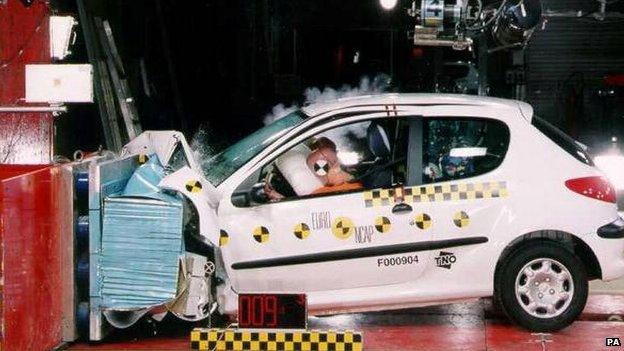China's slowdown takes its toll
- Published
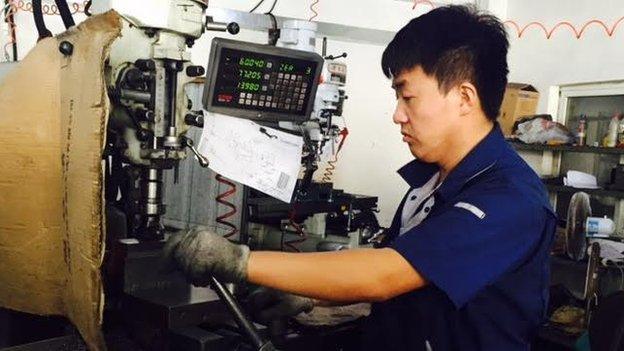
It is an almost Dickensian scene. Workers hunched over their benches, the glow from the sparks of their metal-cutters throwing their faces into sharp relief.
This isn't 19th Century Victorian England though. It's just outside the city of Dalian, in north-east China.
These workers were once the engine of China's two decades-long economic miracle. But on factory floors across the country these days, there is an increasing uneasiness about the future.
Qiao Ao has worked at this factory for the last four years making parts for bigger machines that are sold overseas to Europe and Japan.
He is a migrant worker, like many of his friends here.
Just a few months ago, he was constantly busy, but that's not the case anymore.
"Our orders have been falling from the beginning of this year," he told me. "I'm not doing as much overtime these days as I used to when business was good, so I don't make as much money as I used to."
That is a story you hear across China more and more these days.
'Worse than 2008'
The economic slowdown in China has hit small manufacturers particularly hard - factory activity has declined to its lowest level since 2009 this year.
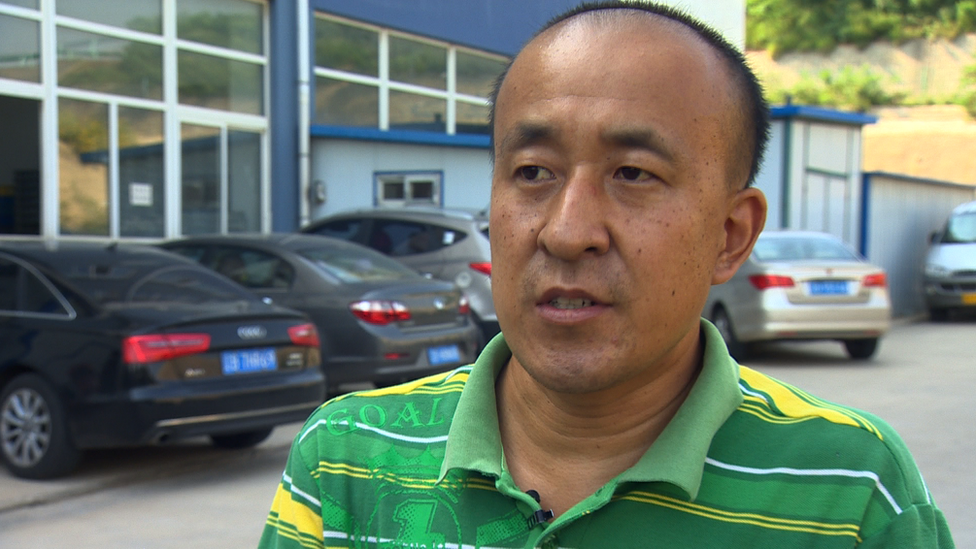
Factory boss Zhang Wenhe says he's never seen business this slow
Exports have slumped too - this week figures for August showed further weakness.
Zhang Wenhe, the boss of this factory, told me he's seen orders fall by 30%-40% since June, and, if things continue like this, he will be forced to let some of his staff go.
"I've been in this business for eight or nine years, and I've never seen it this bad," he told me as we walked through the industrial district around his factory. "A lot of factories in this area have had to shut down, and are letting go of their staff. This is the toughest I've ever seen it - even worse than 2008 during the last crisis."
The current slowdown in China is being felt across the globe - it is, after all, the second largest economy in the world, and what happens here is being felt elsewhere.
So as the great and good of the global business community gather in Dalian on Wednesday for the World Economic Forum, at the top of their minds will be how China plans to manage this economic transition.

World Economic Forum
Describes itself as "the international institution for public-private co-operation to shape the global, regional, national and industry agendas"
Set up in 1971 by Prof Klaus Schwab as a not-for-profit foundation
Holds an annual meeting in January at the Swiss ski resort of Davos, which is essentially a talking shop for business and political leaders to discuss possible solutions to global problems, though it is increasingly attended by celebrities, activists, academics and think tanks too
Since 2007, has also put on the Annual Meeting of the New Champions (sometimes called the Summer Davos) in China, alternating between Dalian and Tianjin
Holds various other regional forums around the world

China managed to borrow and spend its way out of the last crisis, building massive property developments across the country, pushing workers from the factory floors into construction projects.
But now even that pillar of the Chinese economy is suffering.
Ghost town
I drove into the Changxing Island township - just 50 miles (80km) out of Dalian - a satellite city built on the expectation of future growth.
But all I found were miles and miles of brand new, but empty buildings.
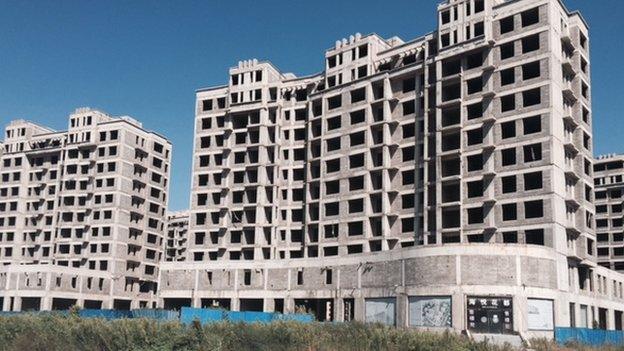
Freshly built but no-one's home
An eerie, end-of-the-world feeling descends upon you as you walk around the town.
Freshly painted pedestrian crossings and traffic lights line the pavements but there is barely anyone on the streets.
One block of flats is aptly called Fairyland, a name its developer would never have dreamed could have the negative connotations it now does.
Tens of thousands of flats here lie uninhabited, part of the estimated 70 million unsold homes that have been built across the country, for a middle-class population that never showed up.
The Chinese government says this is all part of the plan to move from an export-led economy to a modern one based on services.
It is textbook economics and part of the often painful cycle maturing economies need to go through.
But as China's economy changes, it has to create jobs for the next generation.
'Obsessed with money'
Zoey Ye is 21 years old. Fresh-faced and an English and American literature enthusiast, she is nervous about her job prospects because of the slowdown.
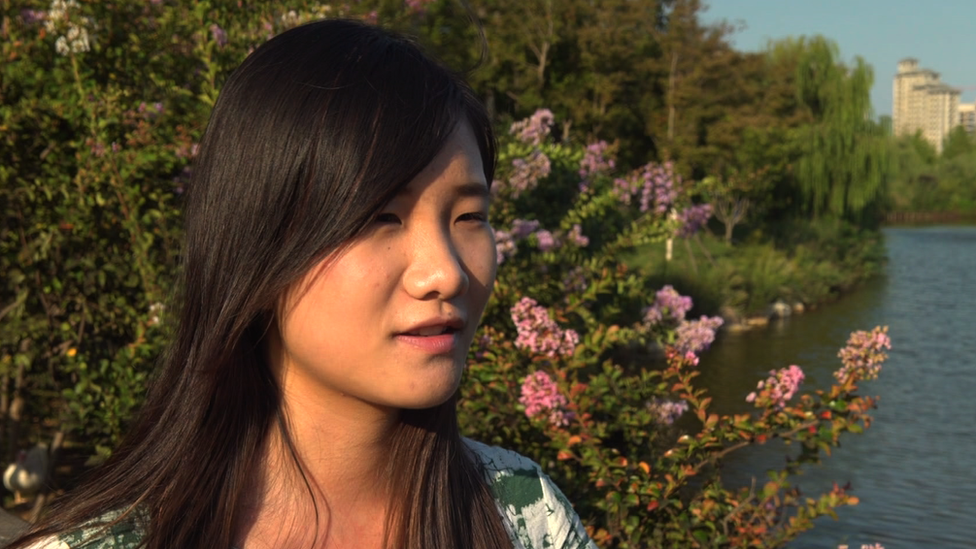
Zoey Ye has high expectations for the future
"I think the economy has become a little slow, so companies don't hire new people," she told me as we walked around her university lake.
"But I am educated, and I want to make money so my children can have everything they want."
You just have to take a look around Zoey's university to see the challenge that China faces as its economy changes.
An estimated eight million Chinese graduates enter the workforce every year and, like Zoey, they all have rising expectations about their future.
As we stroll around the green campus, Zoey and I share stories of our favourite books, and chance upon a common one - The Great Gatsby by F Scott Fitzgerald.
"I think there's a lot of parallels with modern China and that book," she tells me. "Everyone here is obsessed with money too."
Managing these expectations will be one of the government's key challenges ahead.
- Published8 September 2015
- Published4 September 2015
- Published27 August 2015
- Published25 August 2015
- Published24 August 2015
- Published21 August 2015
